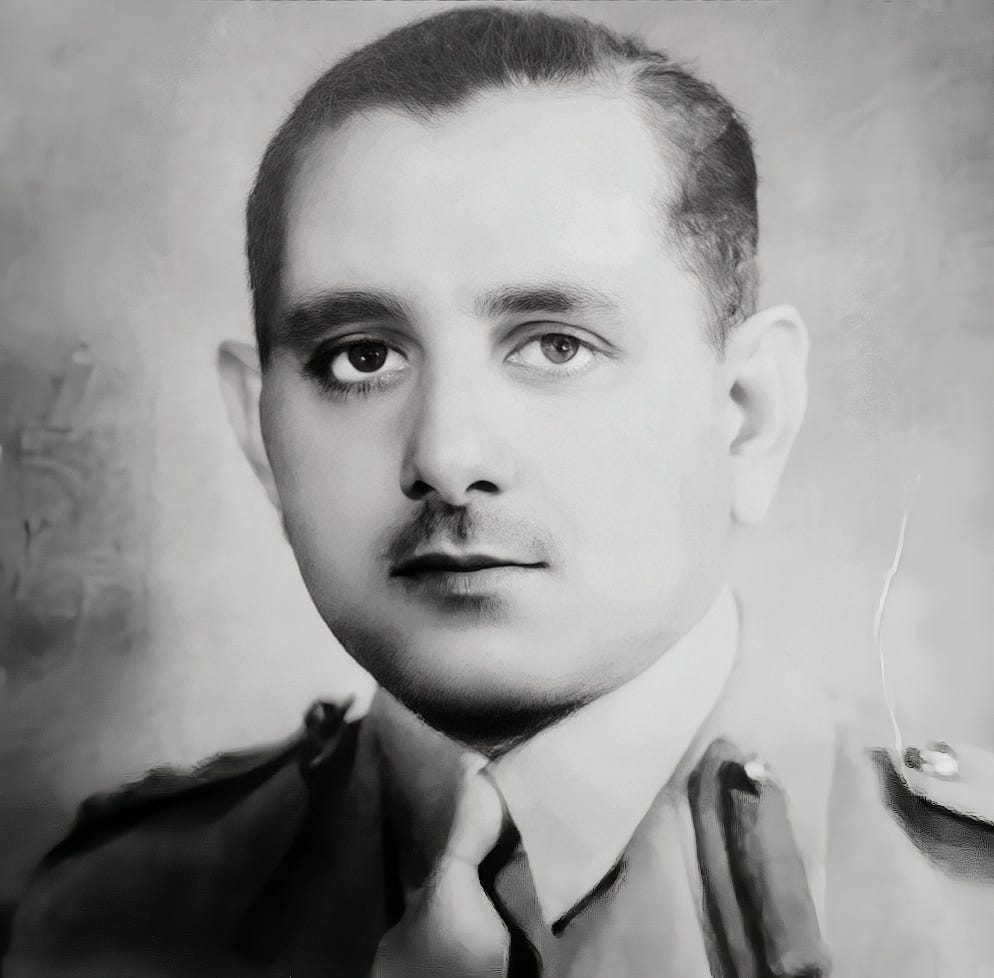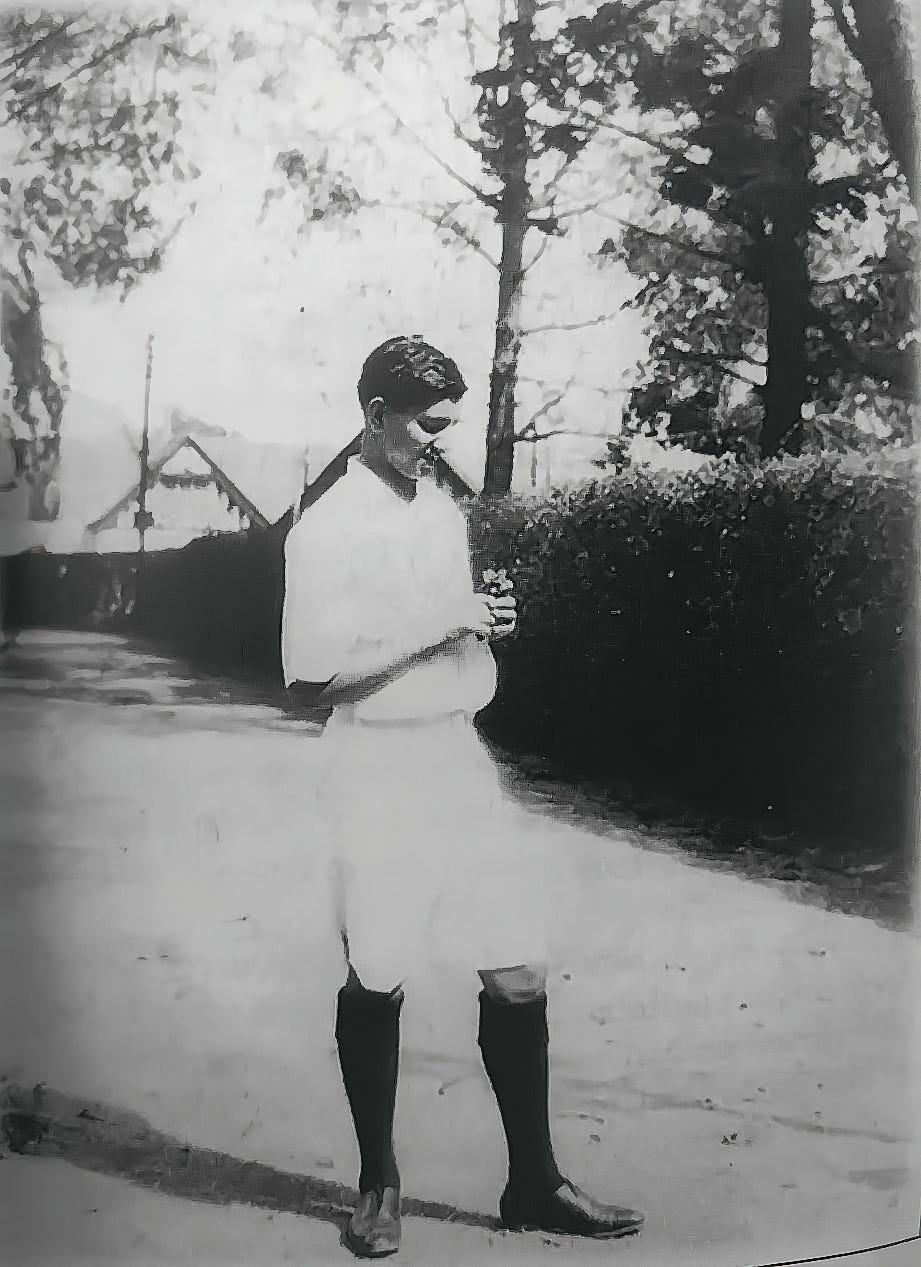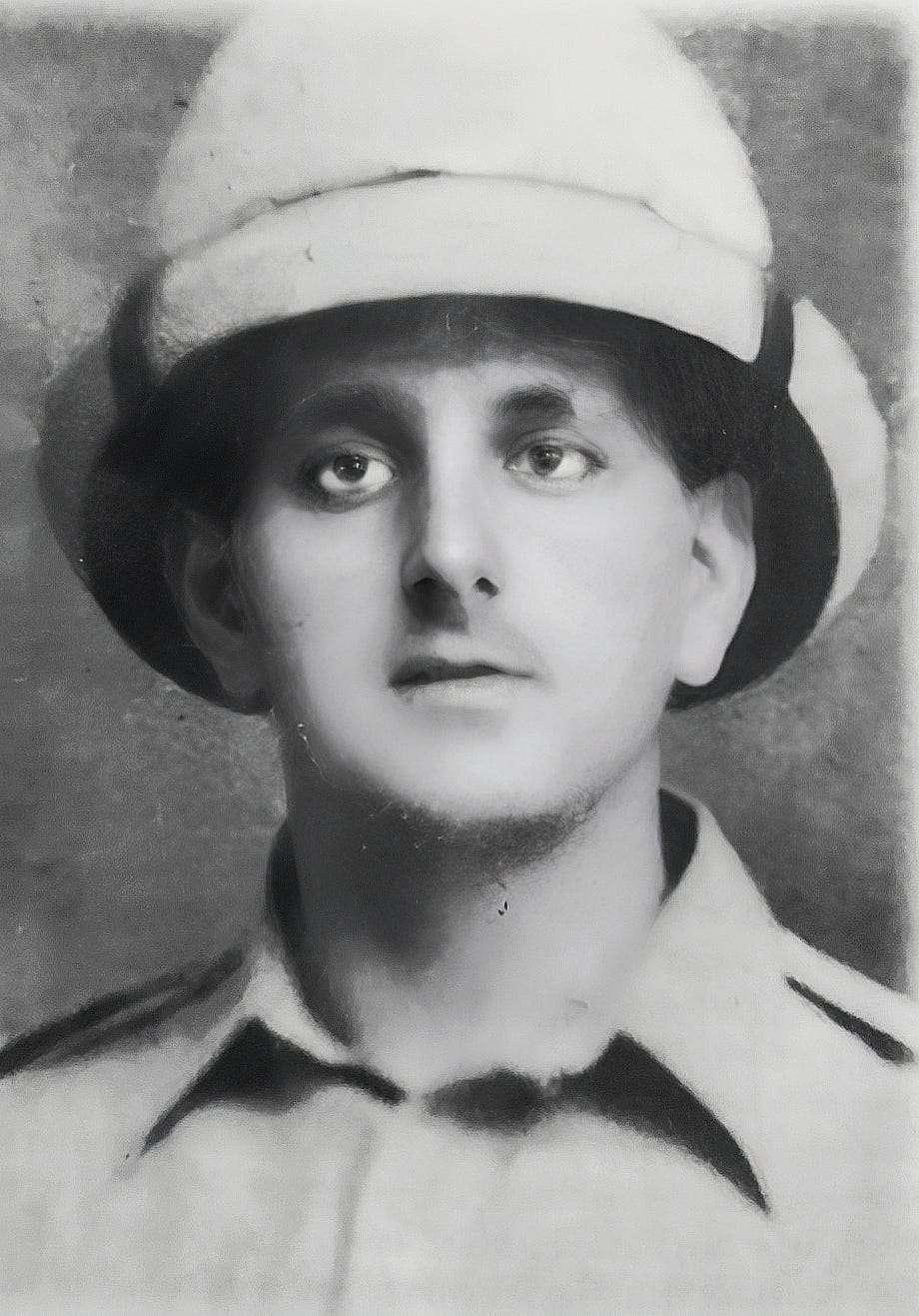Brigadier (retired) Mirza Hamid Hussain was a career army officer who was initially commissioned in the Royal Indian Army and after partition joined the Pakistan Army. He has the distinction of serving [albeit briefly] as the third Director of Pakistan's Inter-Services Intelligence (ISI) during its initial years in Karachi.
He was born on 4 July 1914 in Old Delhi, Undivided India to a family that claimed descent from Nawab Qasim Jan Bahadur, a Mughal noble who purportedly immigrated from Yarkhand [present-day Yarkant County in Xinjiang Uyghur Autonomous Region of China]. On this account, he was a direct descendant and relative of the Nawabs of Loharu. Hamid's mother was the great grand-daughter of Syed Muhammad bin Muttaqi Khan, elder brother of Sir Syed Ahmed Khan who founded Aligarh Muslim University.
Initially commissioned in the 1st Battalion, King's Shropshire Light Infantry, Hamid was later moved to 5th Battalion (Duke of Connaught's Own), 11th Sikh Regiment on the recommendation of his first Commanding Officer, Lieutenant Colonel [later retiring as Honourary Brigadier] George Stephen Brunskil. Eventually, later in his career, he was subsumed in the Ordnance Corps.
Hamid’s younger brother Lieutenant Colonel Mukhtar Hussain Barlas was also an officer in the Pakistan Army.
Known Academic History:-
Briefly studied in Grade 5 at Aligarh Muslim University, Undivided India (1923-24)
Briefly studied at erstwhile Anglo-Arabic College in New Delhi, Undivided India (1924); the institute is today known as Zakir Husain Delhi College
Brief studies at an unknown local school in Sagar, Undivided India (1925)
Schooling at Jesus and Mary Convent School in Sagar, Undivided India (1925-26)
Pre-military education at erstwhile Prince of Wales Royal Indian Military College, Dehradun, Undivided India (1926-32); the institute is today known as Rashtriya India Military College
Training at Indian Military Academy (IMA) in Dehradun, Undivided India (1932-35); Hamid was part of "The Pioneers" or the first batch of officers in IMA. His contemporaries, among others, included Sam Manekshaw [later Field Marshal and Commander-in-Chief of India], Dewan Ranjit Rai [later Lieutenant Colonel], Mohan Singh [key founder of the pro-Axis Indian National Army led by Subhash Chandra Bose] and Habibullah Khan Khattak [later Lieutenant General and Deputy Commander-in-Chief of the Pakistan Army]
Staff Course from Command & General Staff College, Quetta (1944)
Advance Ammunition Course (?-?)
Inspection Ordnance Officer (?-?)
Known Professional History:-
2nd Lieutenant rank/ Platoon Commander, B Company of 1st Battalion, King's Shropshire Light Infantry, Delhi Cantonment, Delhi Fort, Chakrata and Kamptee (1935-?)
2nd Lieutenant and probably Lieutenant ranks/ officiating Company Commander 5th Battalion (Duke of Connaught's Own), 11th Sikh Regiment in Aurangabad, erstwhile Hyderabad State (?-?)
Unknown rank/ Commandant Ammunition Depot, Iraq dealing in ordnance affairs (sometime during World War II)
Unknown rank/ Headquarters Tenth Army, Iraq dealing in ordnance affairs (sometime during World War II)
Unknown rank/ Headquarters Persian Gulf Command, Iran dealing in ordnance affairs (sometime during World War II)
Lieutenant Colonel rank/ Assistant Director Ordnance Services, General Headquarters, Rawalpindi (1945-47)
Colonel rank/ Deputy Director Ordnance Services (Administration), General Headquarters, Rawalpindi (1947-49)
Colonel rank/ Director Weapons & Equipment, General Headquarters, Rawalpindi (1949-50)
Brigadier rank/ Director Staff Duties, General Headquarters, Rawalpindi (1950)
Brigadier rank/ Director (Chief), ISI Directorate, Karachi (August 1950-May 1951); this was his last active service with the Pakistan Army
Deputy Director of the Middle East Division in the Ministry of Foreign Affairs & Commonwealth Relations of Pakistan (1951-52)
Chief of Protocol in the Ministry of Foreign Affairs & Commonwealth Relations of Pakistan (1952)
Counsellor at the Pakistan High Commission in London, UK (1952)
Counsellor at the Embassy of Pakistan in Tehran, Iran (1953-54)
Counsellor at the Embassy of Pakistan in Baghdad, Iraq (1954-55)
Counsellor at the Embassy of Pakistan in Ankara, Turkey (1955-56)
High Commissioner of Pakistan in Colombo, Sri Lanka (1957-61)
President of the Colombo Plan Council (?-?)
Chairman of Karachi Municipal Corporation (1961-63)
Director of Karachi Road Transportation Corporation (?-?)
Post civil service retirement/ Director in Haroon Industries, the company famous for introducing Dodge Darts in Pakistan (?-?)
Honours & Awards:-
Order of Monrovia (?)
Order of the Civil Merit of Spain (?)
Memberships: The Royal Automobile Club, London
Miscellaneous:-
He had a very brief [less than a year] tenure in the ISI, having been appointed a month before General Ayub Khan assumed charge as Pakistan's first indigenous army chief. ISI in those days was in its nascent stages and focused on organisational structuring under British guidance, India-centric operations and counter-subversion activities of early Bengal secessionists in East Pakistan. The timing of his end of term indicates he may have been asked to step aside following the botched Rawalpindi Conspiracy [early 1951]
His initial tenure as Chief of Protocol in the Ministry of Foreign Affairs and Commonwealth Relations [1952] coincides with the time during which Chinese Muslim academic and interpreter Haji Jalaluddin Wang Zengshan was asked to extend his translation and interpretation services from the Ministry to the Intelligence Bureau as well as the ISI [I am strongly inclined to the possibility that it was indeed Hamid who supervised Wang's liaison with both agencies]. Furthermore, it is interesting [but likely a mere coincidence here] that Hamid was appointed Counsellor in Ankara the same year [1955] when Wang moved out to Istanbul from Pakistan
His diplomatic postings to Iraq and Turkey coincide with Pakistan's memberships to the Baghdad Pact/ CENTO and appear to have been made in lieu of his extensive World War II experiences in the Middle East. In this respect, he was undoubtedly among the key liaisons for Pakistan’s military leadership led by then army chief General Ayub Khan
References
'The Battle Within', autobiography by Brigadier Mirza Hamid Hussain, originally published in 2003 by Royal Book Company, Karachi
Bidanda M. Chengappa, 'The ISI Role in Pakistan's Politics', IDSA Strategic Analysis, February 2000 (Vol XXIII No. 11), accessed at https://ciaotest.cc.columbia.edu/olj/sa/sa-feb00-2.html
Christopher Buyers, 'Loharu - The Yusufi Dynasty', accessed at https://www.royalark.net/India/loharu2.htm








